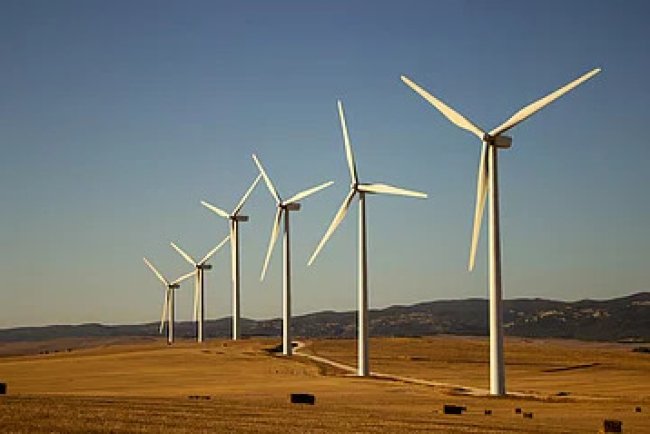NTPC Plans $62 Billion Investment for 30 GW of Nuclear Power by 2045

February 20, 2025 – India's government-owned power producer NTPC has ventured a bold pledge to construct 30 gigawatts (GW) of nuclear electricity capacity by 2045. The plan is a radical shift in the energy policy of India, as the government opens the nuclear sector to private and overseas investment. The total investment for the expansion has been estimated at $62 billion.
Tripling Nuclear Energy Targets
NTPC had initially planned to add 10 GW of nuclear power but has now increased the target three times. The upgradation is in line with India's long-term energy vision, with a commitment to commissioning 500 GW of non-fossil fuel electricity generation capacity by 2030 and at least 100 GW of nuclear capacity by 2047.
The Nuclear Power Corporation of India (NPCIL) is presently the only company operating nuclear power plants in the country with an installed capacity of nearly 8 GW. The state-owned company aims to increase this to 20 GW by 2032. NTPC's plan to install 30 GW of nuclear power will contribute significantly to India's overall nuclear capacity expansion.
Land Acquisition and Site Identification
Land acquisition is a significant problem for NTPC's nuclear schemes as public protest has been generally slowing down atomic energy projects in India. The company is already looking for land in eight states for feasibility surveys in 27 locations. These states are Gujarat, Uttar Pradesh, Madhya Pradesh, Andhra Pradesh, and Tamil Nadu.
These sites have the possibility of hosting over 50 GW of nuclear power, higher than the target currently set by NTPC. Approval and fighting opposition from locals will be key to the development of the projects, though.
Ongoing Nuclear Projects
NTPC has already commissioned two nuclear power facilities of 2.6 GW capacity each in Rajasthan and Madhya Pradesh. These projects are NTPC's maiden entry into the nuclear sector as the company seeks to diversify beyond coal-based electricity generation.
To fuel its nuclear expansion, NTPC has formed a new special subsidiary, NTPC Parmanu Urja Nigam, which will spur investments and collaboration in the region. The company is also engaging in discussions with overseas firms for collaborating on small modular reactors (SMRs), a new generation technology offering a scalable route to nuclear energy.
Possible Partnerships with Global Firms
As part of its expansion plans, NTPC is also considering collaborations with overseas nuclear technology providers. Negotiations have been opened with US, Russian, and French firms.
Potential partners are:
EDF (France): Ready to collaborate with Indian industrial firms on small modular reactor (SMR) projects.
General Electric (US): Negotiations for nuclear reactor construction.
Holtec International (US): Interested in making SMRs in India.
As additional private Indian firms express interest, utilities like Tata Power, Vedanta, Reliance Industries, and Adani Power have also indicated preparedness to enter the nuclear sector. This is because of growing industry confidence following the government's move to open private and foreign investments in nuclear energy.
Government's Role in Nuclear Energy Expansion
The Indian government's decision to allow foreign and private investors into the nuclear industry is expected to spur the development of the sector. Growth of the nuclear industry in India has historically been reserved for state-owned entities due to security and regulation concerns.
Policy change is driven by the imperative to reduce fossil fuel dependence and provide energy security in the long run. Nuclear energy is considered as one of the principal components of India's cleaner energy transition, supporting solar- and wind-based renewable power.
Challenges and Way Forward
Despite the utopian intentions, NTPC's nuclear expansion faces numerous challenges:
Regulatory Permissions: The nuclear sector is highly regulated, and projects undergo many approvals before ground may be broken to construct.
Public Resistance: Land acquisition for nuclear facilities has tended to be confronted with fierce opposition from local residents.
High Initial Costs: Nuclear power facilities require high initial costs, and therefore financing becomes an important consideration.
Yet, with growing government encouragement, development in nuclear technology, and international partnerships, NTPC's nuclear plan could be a game-changer for India's energy sector.
If the plan materializes, NTPC's 30 GW nuclear plan will be a big step towards realizing India's decarbonization dream and reducing the nation's reliance on coal-based power generation. The decision also represents a shift towards greater private sector participation in nuclear energy, which may trigger further expansion in the sector.
Source: Reuters
What's Your Reaction?

















